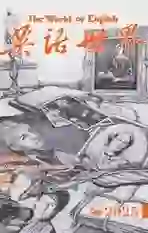Hart Crane to Yvor Winters哈特·克兰致伊沃·温特斯的回信
2025-01-16哈特·克兰/罗怀宇/译介
【导读】哈特·克兰(1899—1932)是20世纪美国最有影响力的诗人之一。他中学毕业后即创作并发表诗歌,在T.S.艾略特和惠特曼等人的影响下,很早就立志以诗歌创作为业,并试图超越自己的偶像艾略特。在短暂且高度戏剧化的一生里,克兰留下了《白色建筑群》《桥》等作品。可以说没有哪个诗人像克兰那样以短暂悲怆的人生和强大的诗歌影响力塑造并改变了美国诗歌的发展轨迹。哈罗德·布鲁姆推崇其为20世纪最伟大的美国诗人之一。
克兰曾与艾伦·泰特、玛丽安·穆尔、E.E.卡明斯、威廉·卡洛斯·威廉斯、伊沃·温特斯等人建立不同程度的友谊并留下了通信记录。选文是克兰写给温特斯的46封信中最有名也最具文史价值的一封,节选自《哈特·克兰与伊沃·温特斯文学书信集》(HartCraneandYvorWinters:TheirLiteraryCorrespondence)第86—89页。这封信的写作背景主要有两个:一是温特斯在来信中就克兰的私生活和创作理念提出了批评;二是埃德蒙·威尔逊在《新共和》杂志发表了一篇评论年度诗歌的文章,指责诗人们为了缪斯放弃社会责任。温特斯针对敏感问题不请自来的建议在克兰看来逾越了友谊的边界,而威尔逊的挑衅则无异于文学的路线之争,在克兰看来都应当予以“抨击”。这封信也是间接写给威尔逊看的。
一如克兰晦涩难懂的诗作,这封私人书信也工于修辞、曲折回环,让人感叹28岁的克兰文风何其老熟。信中的一些观点时至今日仍有启发意义,比如:诗人是否要做“全人”,诗歌是否必然要回应“世务”、是否必然要向“时代需求”妥协,诗人是否要效仿古典诗人、是否要接受世俗的定义,等等。
Patterson,NewYork
May29th,1927
DearWinters:
纽约帕特森
1927年5月29日
亲爱的温特斯:
Youneedagooddrubbingforallyourrecenteasytalkabout‘thecompleteman,’thepoetandhisethicalplaceinsociety,etc.I’mafraidIlackthetimerightnowtoattemptwhatImightcallarelativelycompleteexcuseforcommittingmyselftotheabovesentiments—andIamalsoencumberedbyagooddealofsympathywithyourviewpointingeneral.Wilson’sarticlewasjusthalf-bakedenoughtomakeonewarmaroundthecollar.Itissodamnedeasyforsuchashe,bornintoeasymeans,graduatedfromafashionableuniversityintoacriticalchairoverlookingWashingtonSquare,etc."tosittightandhatchlittlesquibsofadvicetopoetsnottobeso‘professional’asheclaimstheyare,asthoughallthenameshehasjustmentionedhadbeenassuavelynourishedashe—asthough4outof5ofthemhadn’tbeendamnedwellforcedthemajorpartoftheirlivestogrubatanykindofworktheycouldmanagebyhookorcrookandthefearofhelltosecure!Yes,whynotstepintotheStateDept.andjointhediplomaticcorpsforachange!Indeed,orsomeothercourtlyoccupationwhichwouldbringyouintowideandactivecontactwithworldaffairs!AsamatteroffactI’malltooreadytoconcedethatthereareseveralothercareersmoreengagingtofollowthanthatofpoetry.Butthecircumstancesofone’sbirth,theconductofone’sparents,thecurrenteconomicstructureofsocietyandathousandotherlocalfactorshaveasmuchormoretosayaboutsuccessionstosuchoccupations,thenaivevolitionsofthepoettothecontrary.Iagreewithyouofcourse,thatthepoetshouldinaslargeameasureaspossibleadjusthimselftosociety.Butthequestionalwayswillremainastohowfartheconscienceisjustifiedincompromisingwiththeage’sdemands.
你近来轻率地谈论“全人”、诗人及其社会伦理地位等话题,着实该受一番抨击了。我此刻恐怕无暇找个我认为相对彻底的理由,来解释自己为何会有上述情绪——更何况,对你的观点大体上我仍颇为赞同。威尔逊那篇文章半生不熟,足以让人感到不安。对于他这样的人,一切都轻而易举得很——他出身优渥,从一所知名大学毕业后直接坐上了评论席位,在俯瞰华盛顿广场的办公室里正襟危坐,炮制或幽默或讽刺的小短文,建议诗人们不要像他所说的那么“专业”,就好像所有他提到的这些人都像他那样被生活温柔以待——仿佛这些人中的五分之四不是大半生疲于奔命,想方设法要找个工作,任何应付得了的工作,还终日惶惶,唯恐生计无着!是啊,可以改行去国务院当个外交官啊!其实,也可以找个别的什么体面工作,那样就能更广泛、更主动地接触世务了!事实上,我完全承认有若干职业比诗歌创作更吸引人。但是,一个人的家庭条件、父母的言传身教、当前社会的经济结构及无数其他环境因素对于这些职业的承继都有着同样甚至更多的影响,而诗人的天真意愿则恰恰相反。当然,我同意你说的诗人应该尽可能适应社会。但有个问题始终会存在,即良知在多大程度上可以与时代需求相妥协。
Theimageof‘thecompleteman’isagoodidealisticantidoteforthehorridhysteriaforspecializationthatinhabitsthemodernworld.AndIstronglysecondyourwishforsomedefiniteethicalorder.Munson,however,andanumberofmyotherfriends,notsolongago,beingstrickenwiththesameurge,andfeelingthatsomethingmustbedoneaboutit—rushedintotheportalsofthefamousGurdjieffInstituteandhavesinceputthemselvesthroughallsortsofHinduantics,songs,dances,incantations,psychicsessions,etc.,sothatnow,presumablytheleftlobesoftheirbrainsandtheirrightlobesrespectivelyfunction(M’sfavoriteword)inperfectunison.IspenthoursatthetypewritertryingtoexplaintocertainoftheseurgentpeoplewhyIcouldnotenthuseabouttheirmethods;itwasalltonoavail,asIwastoldthatthe‘completeman’hadadifferentlogicthanmine,andfurtherthattherewasnowayofgainingorunderstandingthislogicwithoutfirstsubmittingyourselftothenecessarytraining.Iwasfinallylefttorollinthegutterofmyancientpredispositions,andsufferedtoreceiveagooddealofunnecessarypityformyobstinance.Someofthem,havingfoundagoodsubstitutefortheirformerinterestinwritingbymeansofmorecompleteformulasofexpression,haveceasedwritingaltogether,whichisprobablyjustaswell.Atanyratetheyhavebecomehermeticallysealedsoulstomyeyesight,andIamreallynotabletoofferjudgment.
“全人”形象是应对现代世界可怕的专业化狂热的一剂理想主义良药。我也强烈赞同你关于建立某种明确的伦理秩序的愿望。然而,就在不久前,由于遭受同一种冲动的困扰,曼森和我其他一些朋友都感到必须要为此做些什么——于是他们冲进著名的葛吉夫学院的大门,不厌其烦地学习了印度教的各种滑稽姿势、歌曲、舞蹈、咒语和灵修课程等,所以现在,想必他们的左脑和右脑各自运转(曼森最喜欢用这个词),配合默契。我曾花很多时间打字撰文,试图向这一心情迫切的群体中的某些人解释为什么我对他们的方法提不起兴趣;但一切都是徒劳,我得到的答复是,“全人”的逻辑和我的不一样,并且,一个人首先需接受必要的训练,否则无法获得或者理解这种逻辑。最终徒留我在陈旧执念的阴沟里翻滚,还为自己的固执忍受了那么多不必要的怜悯。他们中的一些已经找到了某种更完备的表达方式取代从前的写作兴趣,因而完全停止了写作,这或许也不是坏事。不管怎样,在我看来,他们的灵魂已经完全封闭,我实难做出评判。
Iamnotidentifyingyouradviceinanyparticularwaywiththeirs,foryouarecertainlylogical,somuchsothatIaminclinedtodoubtthesuccessofyourprogramevenwithyourself....Iamonlybeggingthequestion,afterall,andaskingyounottojudgemetoosummarilybytheshorthandstatementsthatonehastouseasthemakeshiftforthenecessarychaptersrequiredformoreexplicitandfinalexplanations.Iamsuspect,Ifear,forequivocating.ButIcannotflattermyselfintoquiteasdefiniterecipesforefficiencyasyouseemto,onereasonbeing,Isuppose,thatI’mnotsoardentanaspiranttowardtheratherclassicalcharacteristicsthatyouciteasdesirable.ThisisnottosaythatIdon’t‘envy’themanwhoattainsthem,butratherthatIhavelongsinceabandonedthatfield—andIdoubtifIwasborntoachieve(withtheparticularvision)thoserichersynthesesofconsciousnesswhichwebothagreeinclassingassupreme;atleasttheattitudeofaShakespeareoraChaucerisnotminebyorganicrights,andwhytrytofoolmyselfthatIpossessthattypeofvisionwhenIobviouslydonot!
我并非刻意将你的建议与他们的相提并论,因为你的确是合乎逻辑的,逻辑之强甚至让我怀疑你的计划你自己都无法完成。……说到底,我只是想当然,请你不要仅凭那些简短的陈述草率地评判我,那些不过是提供明确最终解释所需的必要章节的临时代用品。恐怕我的模棱两可会让人起疑。但我做不到你看上去那般自我陶醉,以为自己找到了确定的高效秘诀,原因之一,我想是对于你认为理想的古典特征我并不那么孜孜以求。这并不是说我不“羡慕”达到这种境界的人,而是我早已放弃了那片领域——我怀疑天生我材是否就为(以特别的眼界)实现你我都认为至高无上的那种更丰富的意识融合;至少莎士比亚或乔叟的那种态度不是我与生俱来的态度,那为何还要骗自己拥有那种眼界,而实际上我显然没有!
Ihaveacertaincodeofethics.Ihavenotasyetattemptedtoreduceittoanyexactformula,andifIdidIshouldprobablyembarkonanendlesstomewithmonthlyadditionsanddigressionseveryyear.Itseemsobviousthatacertaindecentcarriageandactionisaparamountrequirementinanypoet,deaconorcarpenter.AndthoughIreservemyselfthepleasantrighttodefinethesestandardsinasomewhatindividualway,andtoshoutandcomplainwhencircumstancesagainstmeseemtowarrantit,ontheotherhandIbelievemyselftobespeakinghonestlywhenIsaythatIhaveneverbeenabletoregret—forlong—whateverhashappenedtome,moreespeciallythosedecisionswhichattimeshavebeenpermittedafreewill.(Don’tblamemeentirelyforbringingdownallthissimplicityonyourhead—yourletteralmostsolicitsit!)AndIamascompletelyoutofsympathywiththefamiliarwhimperingcaricatureoftheartistandhis‘divinerights’asyouseemtobe.IamnotaStoic,thoughIthinkIcouldlearnmoreinthatdirectionifIcameto(asImaysometime)appreciatemorehighlytheimaginativeprofitsofsuchacourse.
我自有一套道德法则。我尚未尝试将其简化为任何确切的模式,如果这样做,我可能会开始写一本永远写不完的巨著,年复一年地每月增加些题内话和题外话。显然,对任何一个诗人、助祭或木匠来说,某种得体的举止和行为都是至关重要的。尽管我保留以某种个人方式定义这些标准的愉快权利,也保留在时势似乎不利于我的必要时刻大声疾呼和抱怨的权利,但当我说我从未对经历过的任何事,尤其是依靠自由意志所做的决定感到后悔不已,我相信我是在诚实地表达自己。(说你头脑简单不要完全怪我——你那封信几乎是自寻此路!)我完全不认同艺术家“顾影自怜双泪垂”这种为人熟知的刻板形象及其所谓的“神圣权利”,你的看法似乎也一样。我不是什么斯多葛派,但我认为,如果我能(将来可能会)更加懂得这一路径对于想象力的裨益,我会在这个方向上学到更多。
......
Bestwishes,
HartCrane
…………
谨致良好祝愿
哈特·克兰
(译者单位:北京语言大学)
